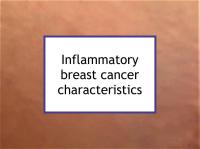A new study has reported on three inflammatory breast cancer (IBC) cases diagnosed within a 10-month period in an office with 24 people. The authors collected Information concerning medical history, pregnancies, family history of breast cancer, birth control pill use, hormone replacement therapy (HRT) use, and exposure to possible carcinogens.
The purpose was to determine whether there were differences in risk factors for IBC between the three cancer cases and 15 cancer-free women in the office (the controls). Both the physical environment and location of the office raised concern about air and water quality as well as radiation possibly contributing to the risk of developing IBC.
Two of the three women with IBC had high exposure to pesticides or herbicides, all three of the women used oral contraceptives, and two of them were using HRT at the time of diagnosis.
In addition, two of the women with IBC had a family history of breast cancer and two were obese. Among the 15 cancer-free controls, four had pesticide or herbicide exposure, nine used oral contraceptives, seven used HRT, one had a family history of breast cancer, and five were obese.
The authors conclude that no specific environmental causes were established for this cluster of IBT. However, they speculate that exposure to hormones (in the form of birth control pills and HRT) and exposure to herbicides or pesticides are possible promoting factors that could potentially result in subclinical breast cancer emerging as IBC.
Please see our articles on inflammatory breast cancer and what to eat if you have IBC.
